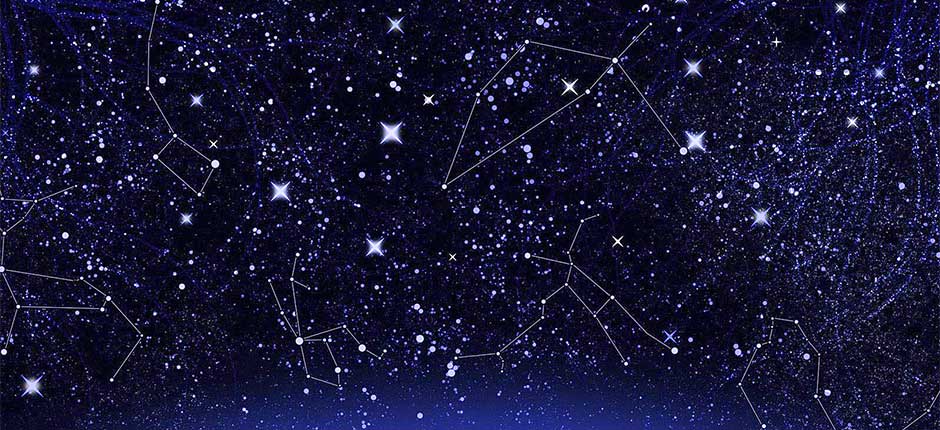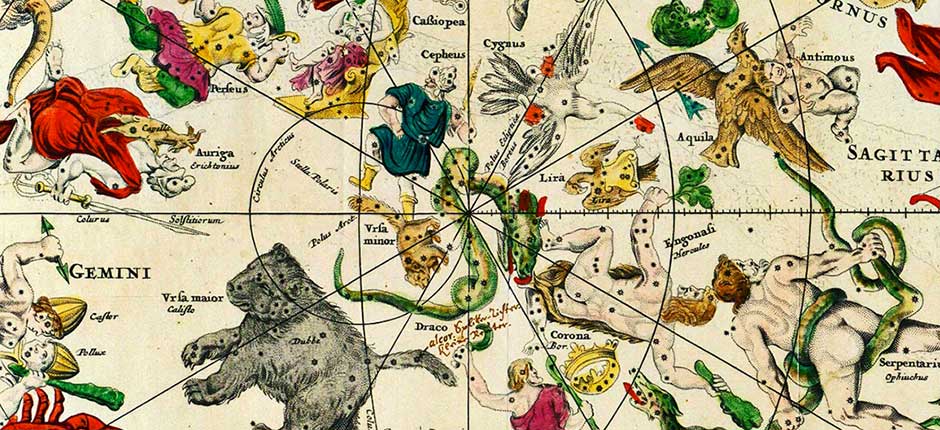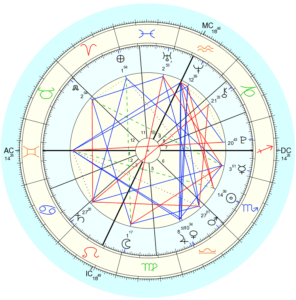The origins of astrology
Astrology as a branch of learning is very ancient. It supposedly originated in India, and from there spread to the Assyrians and Babylonians, to the Egyptians, Greeks and Romans. In the West the practice of astrology almost disappeared in the Middle Ages to then re-emerge in the Renaissance and then be stigmatized definitely in the age of eighteenth century rationalism. Between the end of the 1800’s and the beginning of the 1900’s astrology began to reacquire dignity due to the efforts of some enlightened minds like Jung, the famous psychotherapist, who used the horoscopes of patients, especially in cases of hard diagnosis.
Tropical zodiac and sidereal zodiac
The Chaldeans founded the system of astrology employed in Europe, and in the western world in general, approximately three thousand years ago. In this astrological system one has the first zodiac sign Aries coincide with March 21st, the first day of spring, when the ecliptic, that is the course of the sun around the earth crosses the zodiac belt, an imaginary band parallel to the equator.
From this point of the sky called the vernal or gamma point one marks out twelve sections of 30° each, the so-called signs of the zodiac. In all, the zodiac band has a circumference of 360°. Western astrology is therefore a symbolic system based on the rhythm of the seasons. The zodiac based on the rhythm of the seasons is called the tropical or intellectual zodiac.
This system is subject to much criticism, especially from sceptics, since the oscillatory movements of the terrestrial axis have gradually moved over a cycle of 20,00 years the axis itself with respect to the constellations. This phenomenon is called precession of the equinoxes, and because of this the gamma point no longer coincides with the constellation of Aries.
The sidereal zodiac, the one normally not used in the West calculates the ayanamsa, the degree of the tilt of the Earth’s axis to the constellations.
The supporters of the tropical zodiac maintain that there’s never been a real correspondence between the zodiac signs and the constellations, also because the constellations are of different size, unlike the zodiac signs.
Actually both systems work. We resonate with both the cycle of the seasons and the constellations, and that is part of the mystery of the universe.
Rather than expounding on the tropical/intellectual or the sidereal zodiac one should suggest that sceptics have their natal chart read by a good astrologer who doesn’t know them. They’ll be amazed.
Birth Horoscope
This is the mapping of a birth horoscope calculated using the tropical/intellectual zodiac. The birth horoscope is also called natal chart or birth chart.
You can see the zodiac signs, the positions of the planets in the signs and the aspects the planets form.
A personal birth horoscope is divided into twelve zodiac signs and sectors – or houses – starting from the Ascendant. Each of these houses corresponds to a sector of life.
By studying the astrological houses, the planets in signs and in houses, and the aspects formed between planets, it’s possible to know personal strengths and weak points, so as to exploit strengths and boost weak points better.
I invite you to listen to the video in the section Karmic Astrology to comprehend how karmic astrology uses this knowledge to help people find their main direction and regain it if it’s been lost.
Can astrology foretell the future?
One last thing to say on astrology is that it is erroneously considered merely a predictive system. In truth, through the study of annual, monthly and daily transitions, rather than make predictions, it’s possible to establish the more or less favourable periods for work, love, money, travel and so forth, for every area of life.
Forecasts of events don’t make sense, in that events depend on our free will, even more so, be wary of astrological forecasts that don’t take into account the personal birth chart, but base themselves exclusively on the sun sign (for example all Aries, all Gemini etc.)








